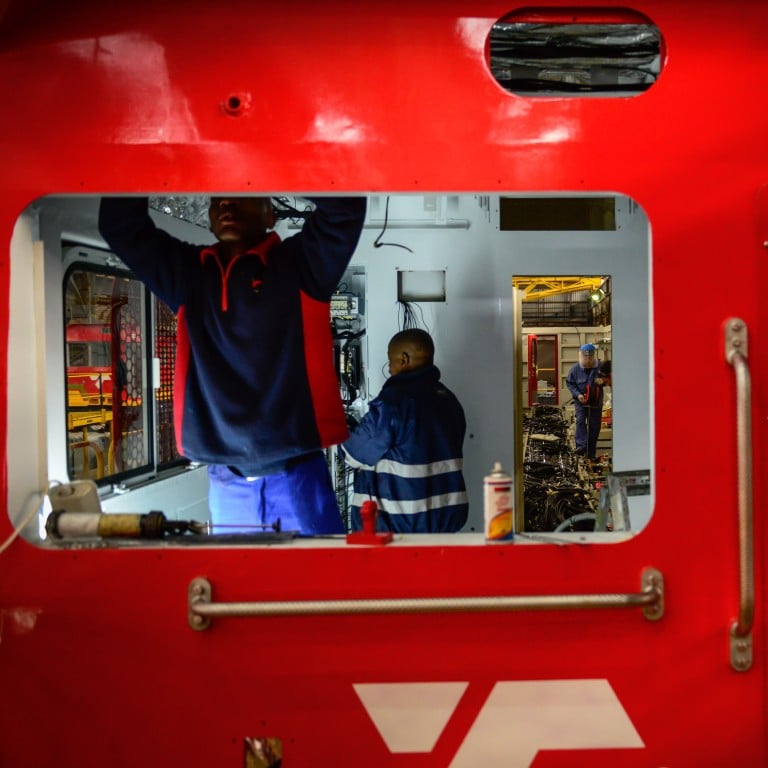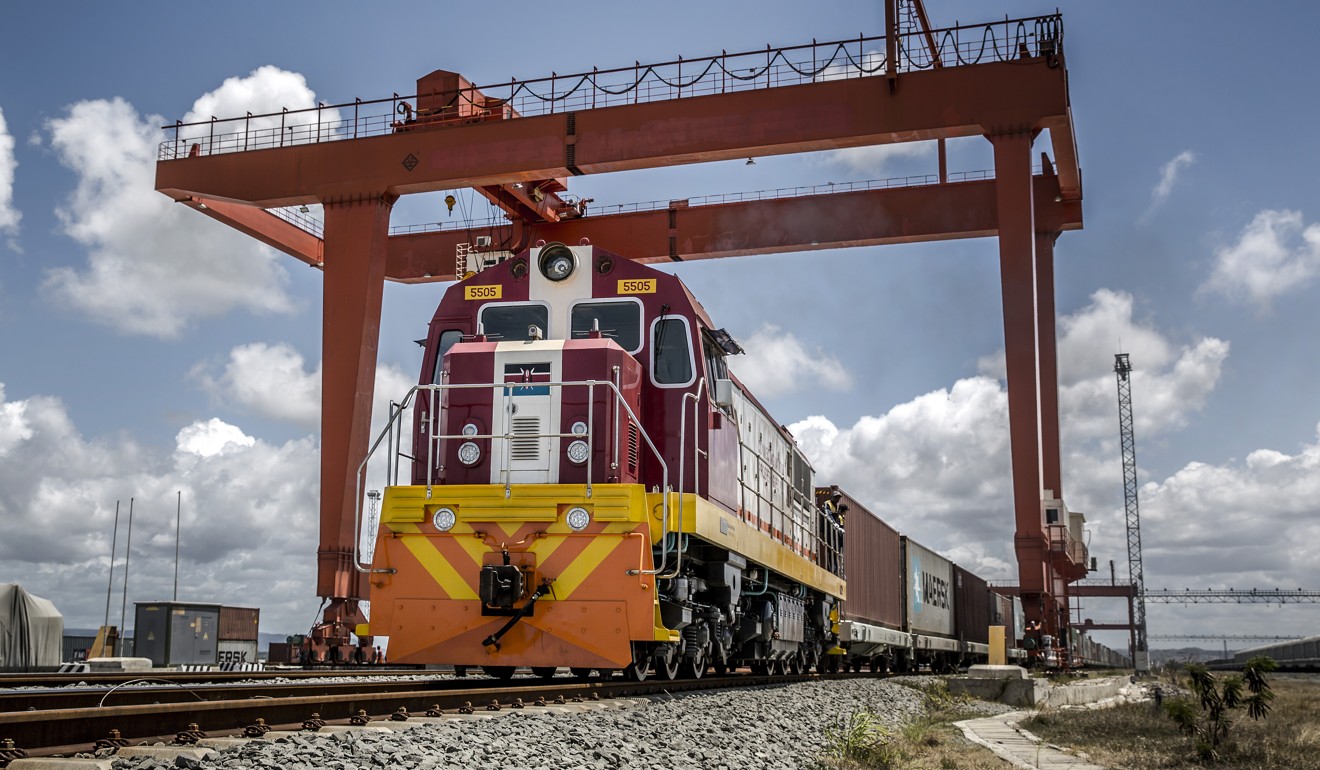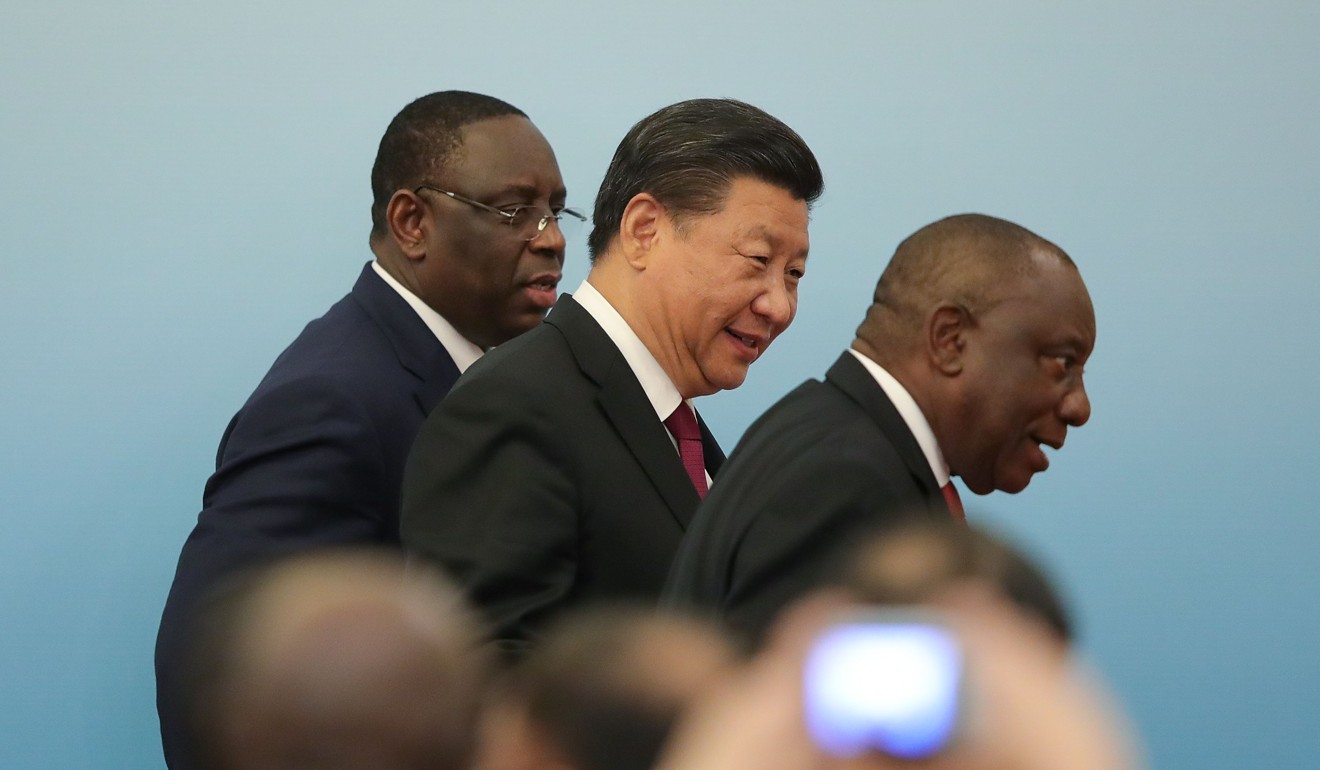
How China’s belt and road plan is making South Africans study Mandarin
- In a bid to continue to strengthen ties with China many South Africans are being taught the subtleties of Chinese language and etiquette
South African businesses are increasingly having their executives learn Mandarin and take cultural sensitivity classes so they can work more effectively with their Chinese partners.
The same trend is found in colleges, where students are looking to China to further their education.
These developments are among the latest in the continually strengthening ties between Africa’s most developed economy and China, building on connections linked to the Belt and Road Initiative, which stretches into East Africa through Kenya.

South Africa also acts as an effective jumping off point into other sub-Saharan countries for China, which is Africa’s largest trading partner.
According to a recent McKinsey report, there are about 10,000 Chinese businesses trading or projects in Africa.
The resulting connections have spawned academies and training centres to help South Africans get acquainted with Chinese language and culture.
One South African outfit, IMS Engineering, has put senior executives through cultural sensitivity and language courses to make doing business with Chinese easier.
They are taught how to conduct themselves not merely in board-level meetings when dealing with Chinese businesspeople, but also on wining and dining – how to hold glasses, exchange business cards and other steps that precede a deal being struck.
South Africans are often considered too direct, wanting to get into a business meeting, and after an hour or two, sign a deal.
Learning about each other’s world view, belief systems and way of life is a critical part of creating a better world for all
That is not how things work in Chinese culture, so many cultural tips and hints are passed on – also to Chinese participants wishing to help bridge the cultural divide by finding out how best to deal with potential business partners in South Africa.
One trainer said: “For a deal to be struck and things done properly, there needs to be at least one ganbei (a form of Chinese toast).”
In April 2017, the partnership between South Africa and China was described as something that could contribute to the civilisations of the world, according to vice-premier at the time, Liu Yandong, during a visit to South Africa.
Liu said cooperation between South Africa and China was strengthened by the fact that both countries were deeply rooted in culture.
“People-to-people exchange covers education, culture, science and technology, think tanks, media, tourism, youth and women. Together [China and South Africa] could help contribute to the civilisations of the world,” she said, marking the launch of a people-to-people exchange mechanism (PPEM) in South Africa, the first in an African country.

South Africa’s National Department of Tourism has run the South Africa-China High-Level PPEM for the past six years.
South Africa is also enjoying a Chinese tourist boom.
In 2016, South Africa welcomed 117,144 visitors from China – a 38 per cent year-on-year increase. The numbers have grown since and South Africans are stepping up their tourism offerings to meet the increased growth.
‘Like a dagger in our backs’: racism no longer just black and white as South Africa’s Chinese fight hate speech
Tour companies have added Mandarin-speaking guides and are translating their promotional materials into Mandarin, while South African Tourism has held exhibitions in major Chinese cities.
South Africa enjoys the close ties to China encouraged by the PPEM with the United States, Russia, Britain, France, Indonesia and members of the European Union.
The mechanism allows countries to exchange information with China, identify common objectives and strategies and create opportunities for people to benefit from the sharing of social, cultural and economic capital across governments, academia, business and civil society.
“Often called soft diplomacy, learning about each other’s world view, belief systems and way of life is a critical part of creating a better world for all,” said South African arts and culture minister Nathi Mthethwa at the time.

